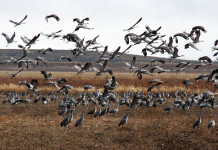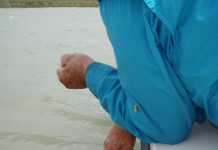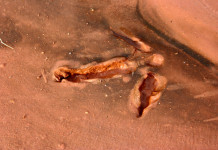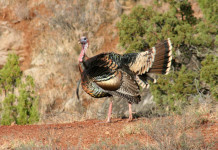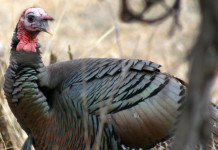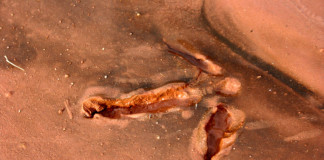A variety of habitat conservation groups have partnered to highlight the important connection between voluntary land stewardship and sustaining water availability in Texas.
Ducks Unlimited partnered with the Association of Texas Soil & Water Conservation Districts, Texas Wildlife Association and Texas State Soil and Water Conservation Board. Effective land stewardship increases the ability of open land to absorb rainfall, replenish aquifers and ensure that water drains slowly and steadily into streams, rivers and lakes.
“This campaign aims to bring more awareness and support to voluntary land stewardship because the way resources are managed on private lands directly impacts the water resources available for public consumption,” said Kirby Brown, DU conservation outreach biologist, in a news release. “Land stewardship on millions of privately owned acres — combined with community conservation efforts — translates into what may be the most significant contribution to water conservation today.”
Due to prolonged drought in Texas, many farmers and ranchers have sought to aggressively adopt innovative technologies and on-farm conservation practices to combat the impacts of drought and improve profitability. Some of these conservation practices, like those put into place through the Texas Prairie Wetlands Project, provide a great benefit to Texas’ water resources, but can be very costly to landowners. DU, along with its partners, assists landowners with conservation improvements to provide wetland habitat and improve water management across the Texas Chenier Plain.
Voluntary land stewardship allows Texans to consider water at its origins, not just at its destination. Practices include things such as prescribed grazing management by ranchers, the use of cover crops by farmers, wildlife habitat enhancement and the targeted removal of invasive brush species.
“Voluntary land stewardship is an efficient, cost-effective and sustainable way to ‘create’ more water for homes, businesses, recreation, agriculture, and wildlife,” said Johnny Ussery, chair of the stewardship committee for the conservation districts, in the release.
Soil and water conservation performed in urban areas also can help supplement land stewardship efforts in rural ones.
“Urban Texans can become involved by practicing effective land stewardship at home and in their neighborhoods, schools and businesses,” Ussery said. “Small efforts, such as using plants in our home landscaping that require little water, can add up to major water conservation when practiced by millions of people across the state.”




